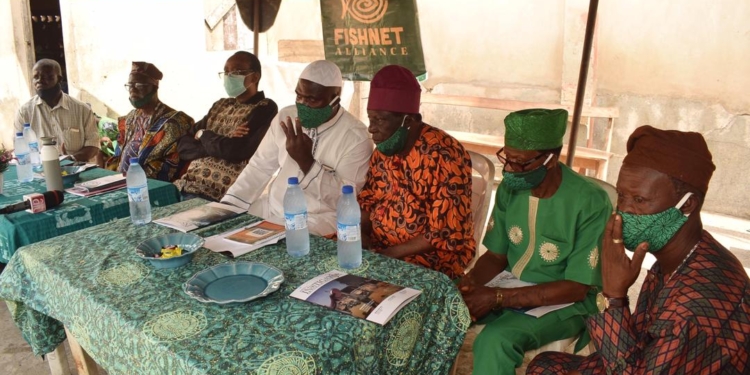Globalization has integrated the world together and makes it a global village such that when there is a catastrophe in a country, there is an increased risk of surrounding countries or beyond to be affected. COVID-19 pandemic started in China spreading to other countries of the world. The pandemic caught the world unawares and unprepared.
However, there is a need for policies to be urgently formulated and implemented by governments to curtail the spread of the virus and reduce the effects on the state’s economy. Despite the urgency, inclusiveness is important so that the policy can be widely accepted. When the policy is inclusive, citizens see it more as ‘our’ policy rather than ‘their’ policy.
Nigeria has three tiers of government and a key determinant of success in Nigeria’s fight against COVID-19 pandemic depends on intergovernmental relations of all tiers of government – federal, state and local. There is a need for harmony in the integrated plan. This does not mean local community leaders should be ignored in the decision-making process of national issues which seems to affect all. I will try to explain the role of community leaders by taking us on the historical lane of the pre-colonial era, colonialism, and post-colonialism in Africa.
Before the advent of colonialism, African societies have their political structure with leaders which they respect and obey. The emergence of colonialism brought about the imposition of European political structure on African societies and relegated existing African political structure to a very passive system which has little or no political power. The leaders of the African political structure were stripped of their political powers and act as a mere appendage of the colonial political structure.
Citizens obey laws of the colonial political structure not because they respect the imposed leaders but because of fear of brutality. Citizens perceived the imposed European political structure as being alien to them and treated it with ‘anyhowness’. They treat the imposed political system during the colonial era with distrust. This is further compounded with the encouragement of the indigenous westernized political class who are competing with the colonialists for the management of the imposed political structure.
Peter Ekeh, Professor of Transnational Studies, State University of New York at Buffalo, pointed this out in his paper ‘Colonialism and the Two Publics in Africa: A Theoretical Statement’ where he argued that in the struggle on who to rule the colony between the African bourgeois class and western colonizers, African bourgeois class encouraged a necessary but destructive strategy which is sabotage of the administrative efforts of the colonizers – late to work, go on strikes, tax evasion etc.
The perception of citizens towards the imposed political structure did not change even after western-educated indigenous political class took over the political structure in the post-colonial era. By this statement, I mean the government structure handed over to the nationalist after independence which we still run today. Over time, the political elites that emerged out of the colonial era and find their way to the helm of affairs in modern post-colonial African societies have also betrayed the citizens’ trust.
They make promises during election campaigns and fail to fulfil. They are notorious for corruption and embezzlement of public funds. This makes citizens believe that any policies that emanate from the government with money involved are not really for the interest of the citizens but to embezzle public funds. It was this same perception some citizens have towards COVID-19 when it broke out in Nigeria and governments set out intervention funds to tackle it. Certain groups of citizens see it as a myth and an avenue for public officials to embezzle funds. However, with the deaths of some prominent Nigerians from Chief of Staff to the President, former Governors, Senators to the Chief Judge of a state, it is obvious COVID-19 is real.
The way citizens perceived the existing indigenous political structure also does not change even after western-educated indigenous political class have taken over the post-colonial political structure. This further proves the respect citizens have for the leaders of the indigenous political structure. They see the leaders and the indigenous structure as part of their heritage. They trust and respect the actors in the indigenous political structure more than the actors in government today.
I am not advocating for the cancellation of the post-colonial political structure imposed by the colonialists. Rather I am saying that governments should be deliberate about leveraging on the existing indigenous political structure which are in various communities and headed by a community leader in sensitizing community members.
Critical to the success recorded recently in Nigeria on the eradication of polio is the engagement between government health officials, donor agencies and community leaders. There was a myth being spread among parents that immunization is poisonous to children and some parents refused to immunize their children. The aftermath of the fake news is the prevalence of polio in some communities. The community leaders were instrumental in engaging and sensitizing their communities on the importance of polio vaccination thereby converting parents who hitherto were averse to polio vaccination.
The federal government cannot be everywhere because of the vast size of the country but with the help of the community leaders, information can get to the nooks & crannies of the country and provide feedback to the government on the yearnings of the citizens.
Seun Akinyemi holds a B.Sc in Politics, Philosophy and Economics as well as an M.Sc in Political Science. His writings have been published in Africa Research Institute, Institute of Development Studies, and Democracy in Africa. He currently works at EiE Nigeria. He can be reached on Twitter via @erudit007.

